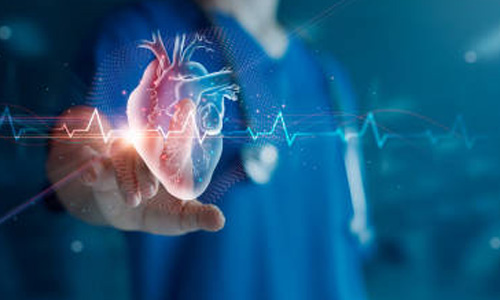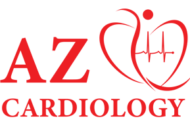Get your heart back on track
The proper functioning of our internal electrical system is essential to maintaining a steady heartbeat, which ensures the smooth flow of blood throughout the body. When there is an imbalance in the electrical impulses that regulate the heart, blood flow can become irregular, leading to reduced oxygen supply to vital organs such as the brain and lungs, resulting in organ damage. This condition is known as an arrhythmia, which often presents symptoms of uneven heartbeats. Thankfully, electrophysiologists offer effective procedures to manage and correct most arrhythmias.
AZ Cardiology is dedicated to providing comprehensive cardiac electrophysiology services to patients with heart rhythm disorders. Our team is committed to delivering high-quality care to patients with complex arrhythmias. Our state-of-the-art technology and innovative treatment options ensure that our patients receive the most advanced and effective treatment available.

When do you need a Cardiac Electrophysiology Services ?
Irregular Heartbeat: If you experience an irregular heartbeat or palpitations, it is essential to seek medical attention. An electrophysiologist can diagnose the cause of your symptoms and develop a treatment plan to restore your heart’s normal rhythm.
Syncope: If you have episodes of fainting or dizziness, it may be a sign of an arrhythmia or other heart condition. An electrophysiologist can perform tests to determine the cause of your symptoms and develop a treatment plan.
Family History: If you have a family history of heart rhythm disorders, it is essential to consult with an electrophysiologist for a comprehensive evaluation and appropriate screening.
Previous Heart Conditions: If you have a history of heart disease or have had a heart attack or heart surgery, you may be at risk of developing arrhythmias. An electrophysiologist can monitor your heart and develop a plan to prevent or manage any potential issues.
Medication Management: If you are taking medication for a heart condition, an electrophysiologist can monitor your heart and adjust your medication as needed to ensure optimal treatment.
Conditions with high risk of cardiac arrest
Ventricular tachycardia: This is a type of rapid heartbeat that originates in the lower chambers of the heart. It can cause symptoms such as chest pain, lightheadedness, and fainting, and can be life-threatening in some cases.
Atrial flutters: This is a type of irregular heartbeat that originates in the upper chambers of the heart. It can cause symptoms such as palpitations, shortness of breath, and fatigue, and can increase your risk of stroke and heart failure.
Atrial fibrillation: This is a type of irregular heartbeat that is characterized by a rapid and chaotic rhythm in the upper chambers of the heart. It can cause symptoms such as palpitations, chest pain, and dizziness, and can increase your risk of stroke and heart failure.
What are the common conditions treated by a cardiac electrophysiologist?
Cardiac electrophysiology services specialize in diagnosing and treating a variety of heart rhythm disorders or arrhythmias. Some of the most common conditions treated by cardiac electrophysiologists include:
Electrophysiology Studies (EPS) – Electrophysiology studies are specialized tests that measure the electrical activity of the heart. They help diagnose the cause of abnormal heart rhythms and determine the most effective treatment plan.
Ablation – Ablation is a minimally invasive procedure used to treat arrhythmias by destroying small areas of heart tissue that are causing the irregular heartbeat. This is done using catheters that are threaded through blood vessels to reach the heart.
Implantable Devices – Cardiac electrophysiologists implant a variety of devices to help regulate the heart’s rhythm. These devices include pacemakers, implantable cardioverter defibrillators (ICDs), and cardiac resynchronization therapy (CRT) devices.
Medications – Cardiac electrophysiologists use medications to treat arrhythmias and other conditions related to the heart’s electrical system. These medications may include beta-blockers, calcium channel blockers, and anti-arrhythmic drugs.
Follow-up Care – Cardiac electrophysiologists provide ongoing care and monitoring for patients with heart rhythm disorders. This may include regular check-ups, adjustments to medications or devices, and lifestyle recommendations.

